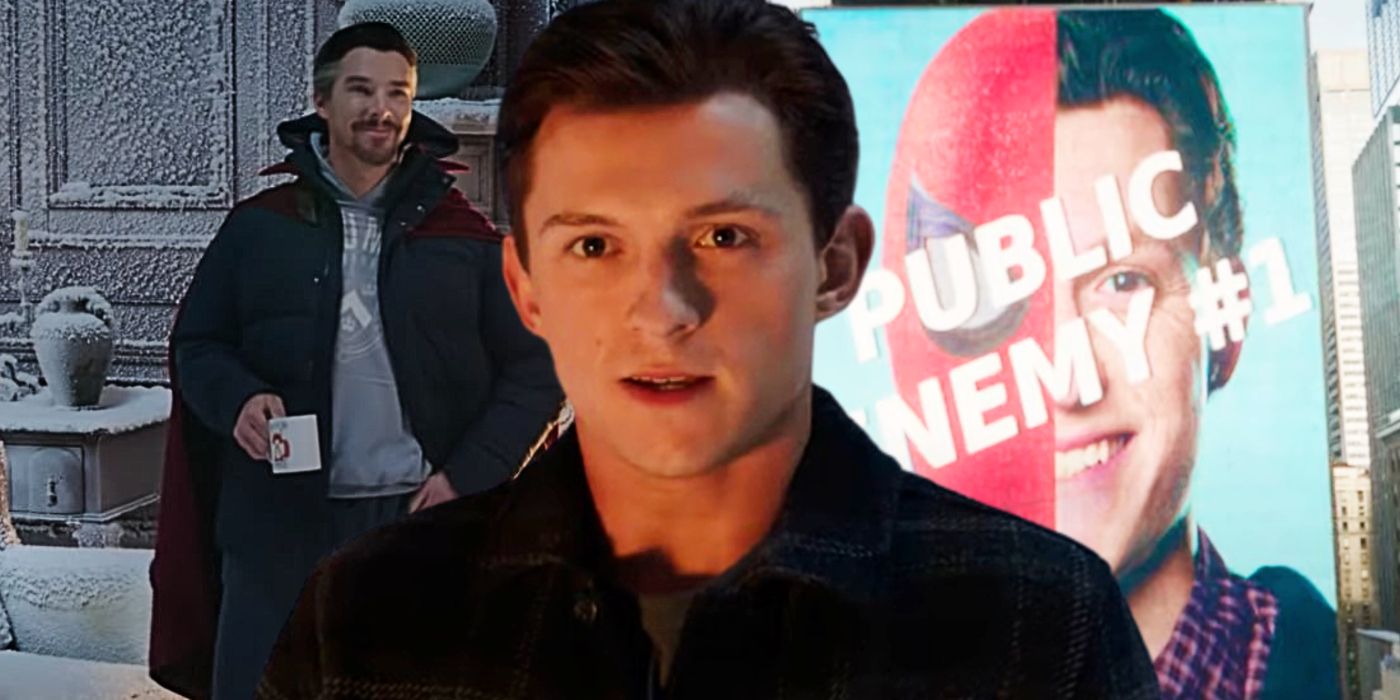The Multiverse Saga will continue in Spider-Man: No Way Home, but just how does it fit into Phase 4 and the MCU's timeline? Following on from the events of Spider-Man: Far From Home, the MCU's third Spider-Man movie will deal with Peter Parker (Tom Holland) coping in a world that now knows he is New York's famous web-slinger, and subsequently looking to reverse that. As seen in the Spider-Man: No Way Home trailer, he's looking to Doctor Strange (Benedict Cumberbatch) to cast a spell that will cause the world to forget Spider-Man's secret identity, but unfortunately breaks the Multiverse open in the process.
With that, then the timeline of Spider-Man: No Way Home will become pretty messy, as different realities crash into one another. That will include heroes and villains from previous Spider-Man movie franchises returning, including the likes of Doctor Octopus (Alfred Molina) and Electro (Jamie Foxx) as well as Tobey Maguire and Andrew Garfield's Spider-Men. There's a lot of chaos about to unfold, but just when is it taking place?
The Spider-Man: No Way Home trailer doesn't reveal an exact date, but it does give some clear clues as to when it's set. Far From Home is eight months after Avengers: Endgame, putting it in the Summer of 2024. No Way Home picks up after that movie, with Peter returning to school, which suggests the movie will likely be kicking off around September 2024: Peter's identity is still a huge deal on the streets of New York, so not too much time can have passed, but it's been a good few weeks at least. The trailer also has what look like Halloween decorations, while previous reports have indicated a Christmas setting, so it seems as though Spider-Man: No Way Home's timeline will cover Fall/Winter 2024.
In terms of Phase 4, that would make it the latest project yet in the MCU's timeline. WandaVision took place just weeks after Endgame, while The Falcon and the Winter Soldier was six months later; the timelines of Loki and Eternals are a little muddier, with the former having the character disappear while in 2012 but also following on from Avengers: Endgame, and the latter also post-Endgame yet spanning 7,000 years of MCU history too. Shang-Chi and the Legend of the Ten Rings, likewise, has a present day MCU timeline, but doesn't seem to be quite as far as Spider-Man: No Way Home is, since that was starting from such as advanced position anyway because of Far From Home.
The timeline should offer up a lot of fun opportunities for the movie, including the chance to see New York at Halloween and Christmas; the city lends itself well to big stories set during the holidays, and of course spooky season would allow for some fun Avengers dress-up possibilities, echoing what WandaVision did with its Halloween costumes. It can also factor into the storytelling, especially at Christmas for Peter's relationships, where they're more important than ever.
For the larger MCU, though, what will matter most is if and when Spider-Man: No Way Home's timeline overlaps with WandaVision and Loki. There is a possibility that the breaking of the Multiverse here aligns with the endings of those shows - WandaVision's post-credits scene is likely at least a few months in the future, since Wanda (Elizabeth Olsen) is in total isolation and has advanced her magical abilities so much, and Loki's ending would be easy to slot in just about anywhere. If those events all happen concurrently, then it'd better explain just how so much goes wrong, with all three then directly leading into Doctor Strange in the Multiverse of Madness.









